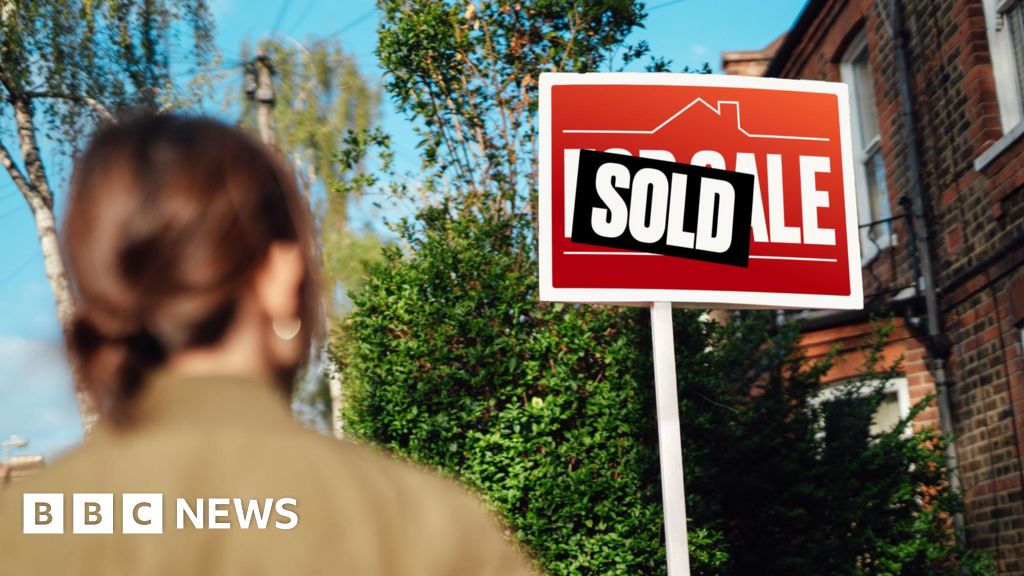ARTICLE AD BOX
By Reality Check team
BBC News
There has been significant disruption at UK airports, with flights cancelled and long queues ahead of the long weekend.
But there is disagreement between the government and industry about the cause of the problems.
Staff shortages
Covid restrictions were hugely challenging for the travel industry.
Airlines UK, the industry body for airlines registered in the UK, said airlines cut about 30,000 jobs during the pandemic, having employed 74,000 people in 2019.
Thousands of jobs were also cut from airports and aviation support activities, which used to employ another 66,000 people.
In June 2020, for example, Swissport, which employed about 8,500 staff at UK airports including baggage handlers and security staff, announced it was cutting more than half of them.
The company has now hired 2,800 people since January, although 1,200 of them still do not have full security clearance.
While travel restrictions have been easing gradually, the last restrictions for passengers entering the UK were only lifted on 18 March.
Meanwhile, unions have said that airport staff have been considering whether it is worth returning to airport jobs and are moving to other areas.
The Office for National Statistics said that between February and April 2022 there were a record 1,295,000 job vacancies in the UK.
Vetting
It takes longer to replace airport staff than other workers because they need security clearance from the Civil Aviation Authority and the government.
There have been reports that the vetting is taking considerably longer than the 14 weeks it usually takes, but the Cabinet Office told BBC News: "There are absolutely no delays to security vetting of applicants. It is wrong to suggest otherwise and we are prioritising vetting applications from the aviation industry."
In order to speed up the process, the government changed the rules at the end of April to allow new staff to receive training while waiting for their vetting, but clearly that will not solve the problems straight away.
Ryanair boss Michael O'Leary pointed out that Brexit means the industry cannot just bring in young Europeans to alleviate staff shortages.
Did anyone see it coming?
The government said its ministers had met with industry leaders before half term to ensure that they were prepared.
Now, Transport Secretary Grant Shapps has said airlines and operators had "seriously oversold flights and holidays".
Gemma Antrobus, chair of the Association of Independent Tour Operators, rejected the government's criticism, blaming a lack of sector-specific support during the pandemic "so that we could survive through the pandemic and then also be ready for the comeback".
"Getting back to those levels of staffing, of training is not as quick and as simple as just a flick of a light switch."
Shadow transport secretary Louise Haigh called on ministers to address the backlog in security checks for new staff and work with industry to address "chronic low pay".
The government said it had given £8bn of support to the industry during the pandemic.
How long will it last?
Industry leaders warned after disruption to flights in the Easter holidays that the situation would not improve for some time.
The industry now has less than two months to prepare for the summer holiday peak. That will give some time to recruit and train extra staff, but it is not yet clear whether it will be enough.
One advantage of the summer break is that the travel peak is not limited to a single week, as happens at half term.
But the current problems are not isolated to the UK.
Amsterdam's Schiphol airport had queues stretching out into the street last week due to a shortage of security staff, which led to KLM suspending ticket sales over the weekend.
Dublin Airport had similar problems on Sunday with staff shortages meaning that customers missed flights because it was taking so long to pass through security.
Meanwhile, Paris Airport tweeted that a breakdown of the computer system used by the border police had led to long waiting times.

 2 years ago
51
2 years ago
51








 English (US) ·
English (US) ·